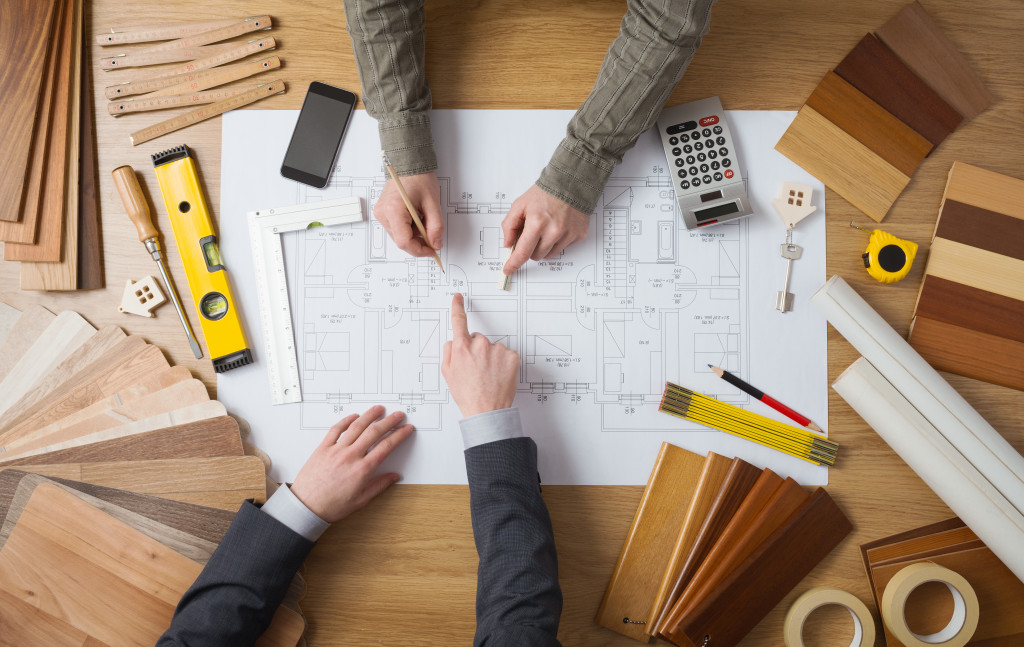There are many factors to consider before starting the process of remodeling your home. Remodeling can be an overwhelming and time-consuming task. It is much more than hiring a carpet cleaning service or a handyman to replace a few doorknobs. It doesn’t have to be overwhelming or time-consuming. One of the main factors to consider before remodeling is how much money you are willing to spend. Another factor may be how long it will take, or even what to do with your old furniture. This article covers all of these factors and more in detail, so you can better understand how to approach your remodel.
Here are ten factors to consider before you plan to remodel your home:
1. How much money are you willing to spend?
When planning to remodel your home, it is essential to budget your money accordingly. Make sure you have enough money saved for the entire process before starting. It may be beneficial to you to set up a separate bank account for home remodeling. Keep track of every single penny that goes into your project so that you know where your money is going.
2. How long will it take?
Make sure you understand how much time you are willing to commit so that the renovations go smoothly and according to schedule. You should also plan around seasons of the year or events such as holidays so that your project does not interfere with anything else going on in your life.
3. Are there any problems?
There may be some underlying problems with your home’s interior design and structure that may need repair before remodeling can begin. It’s a good idea to hire a professional inspector or surveyor to assess these potential issues first-hand. This may help you avoid spending more money on expensive renovations later on.
4. Is your home up to date?
Many trends and styles come and go, such as the country farmhouse look, which is currently popular but may not be for very long. It would be best to learn about current interior design styles before you remodel because it could save you a lot of time and effort in finding items like furniture and decorations that suit your style and taste. If everything matches, the house will feel much better and organized.
5. Do you want to create a new space or redo an existing one?

You should decide whether you want to renovate the entire home or just certain rooms such as the kitchen or bathroom. You may even want to do a combination of both. For example, you could redo the kitchen and create a new bedroom in one remodel project.
6. What kind of mood do you want to evoke in your home?
Different styles can be used to determine how much lighting should be used in a room or whether brighter colors should be painted on the walls. Moods such as relaxation, comfort, and friendliness can be achieved by varying degrees through interior design choices.
7. What is your style?
There are several basic styles for interior design: contemporary chic, traditional, and transitional just, to name a few. Consider what style fits your personality and taste best before starting renovation work so that everything looks cohesive and matches your home.
8. What kind of activity do you want to take place in each room?
If you plan to host parties and events in your living room, for example, it will be a good idea to choose furniture that is both comfortable and stylish so people will enjoy gathering there to socialize. By choosing furniture based on how much activity will be taking place in the room, you can make sure it is functional enough for everyday use and special occasions. Work with an interior designer or decorator if you need advice when deciding what style and type of furniture to select. Keep in mind that these experts may charge for their services depending on the level of service they provide to you and your home.
9. How will you use your home?
If you are planning on having children, it will be good to choose furniture that can withstand high activity levels. You may need to replace older pieces or buy new ones altogether, depending on the amount of space and layout available in your home. Don’t forget about pets as well. They should also have their own area with comfortable and durable furniture and equipment for their own safety and comfort.
10. Do you want to sell?
It is important to consider if you plan on selling your home soon so that the renovations match the style of other homes in your neighborhood or city. You do not want too many renovations done because this may reduce the value of your house when trying to sell later on, so consider doing one project at a time and stop to assess how it has affected the value of your home.
Remember that remodeling is supposed to be fun, so take all the necessary precautions before you start breaking down walls or ripping up carpeting. If you are not completely satisfied with any part of your renovation project, do not feel pressured to continue with something just because it is already started. Several changes have to be made during renovation work anyway because things are not cut precisely straight or sizes aren’t quite right when new materials are brought into the home.
Remodeling should also never involve sacrificing style for budget restrictions—if you want something enough, then save for it until you have enough money saved up to buy what you need. There is no rush when you are changing the layout of your home, so take a step back and consider all options before deciding on something final.

